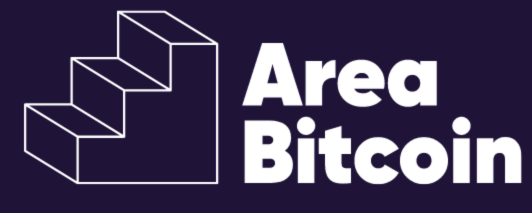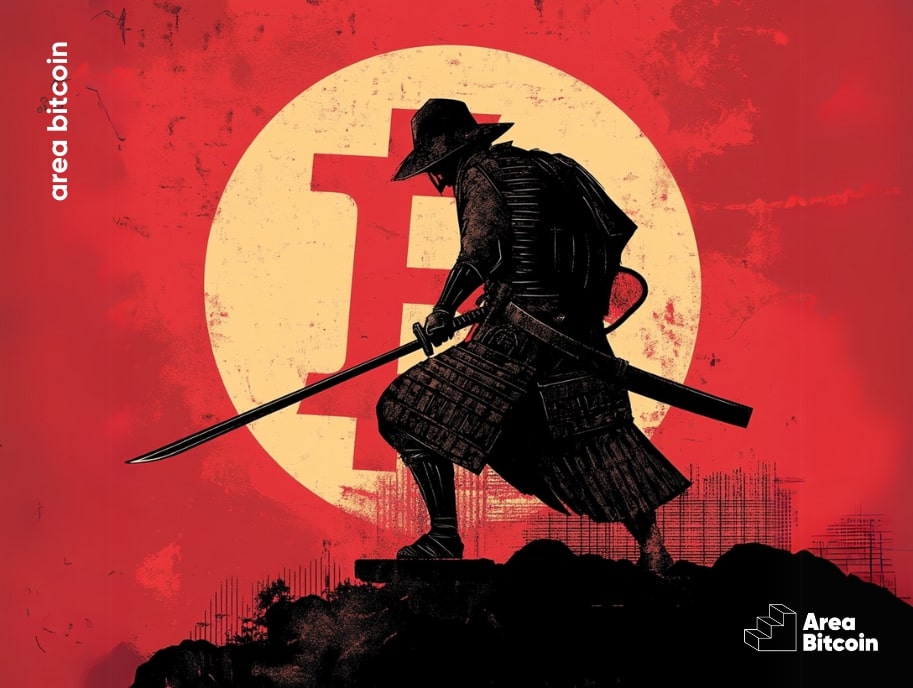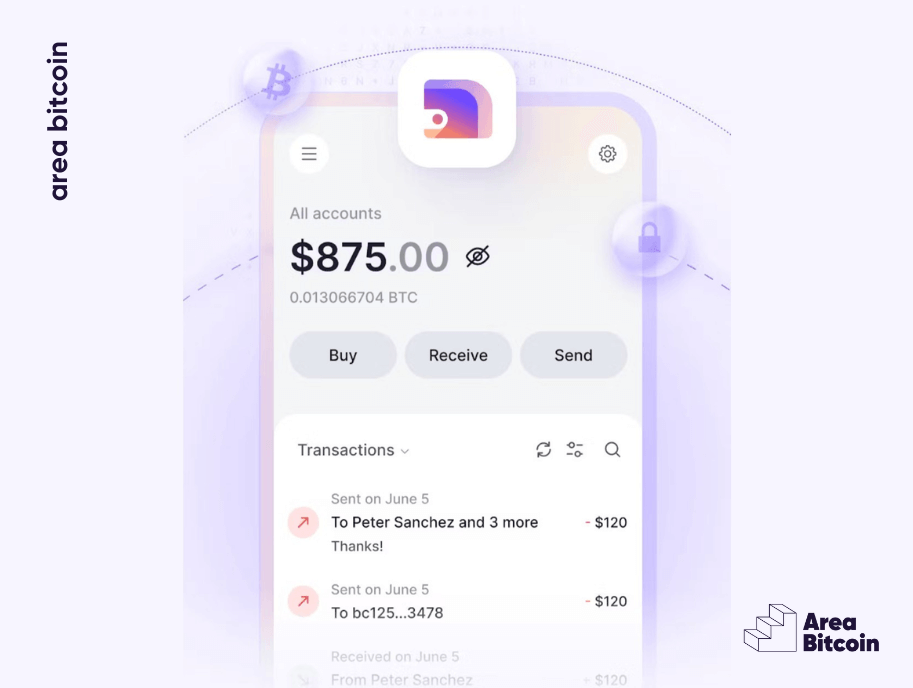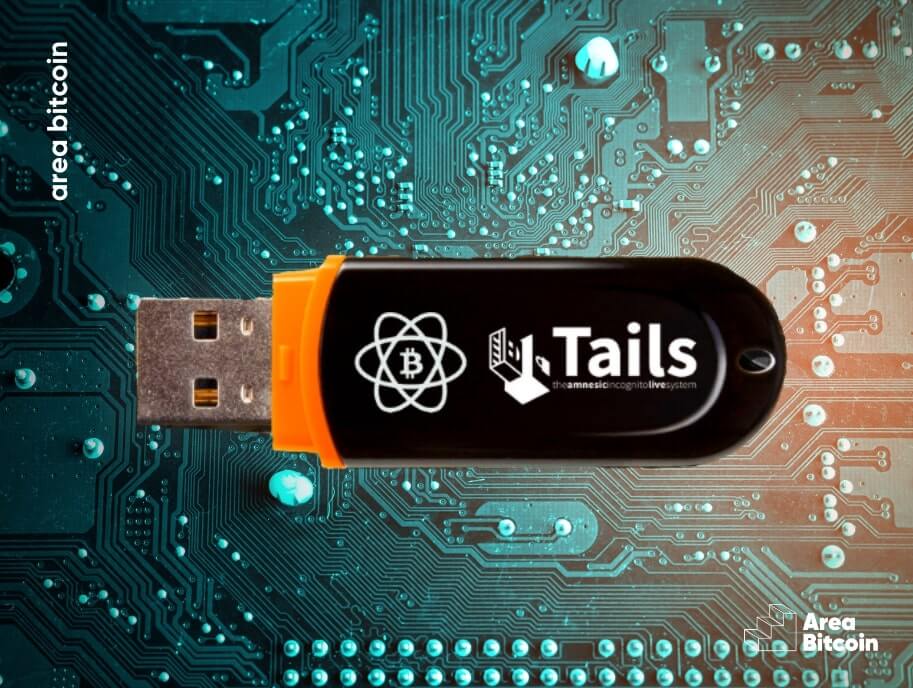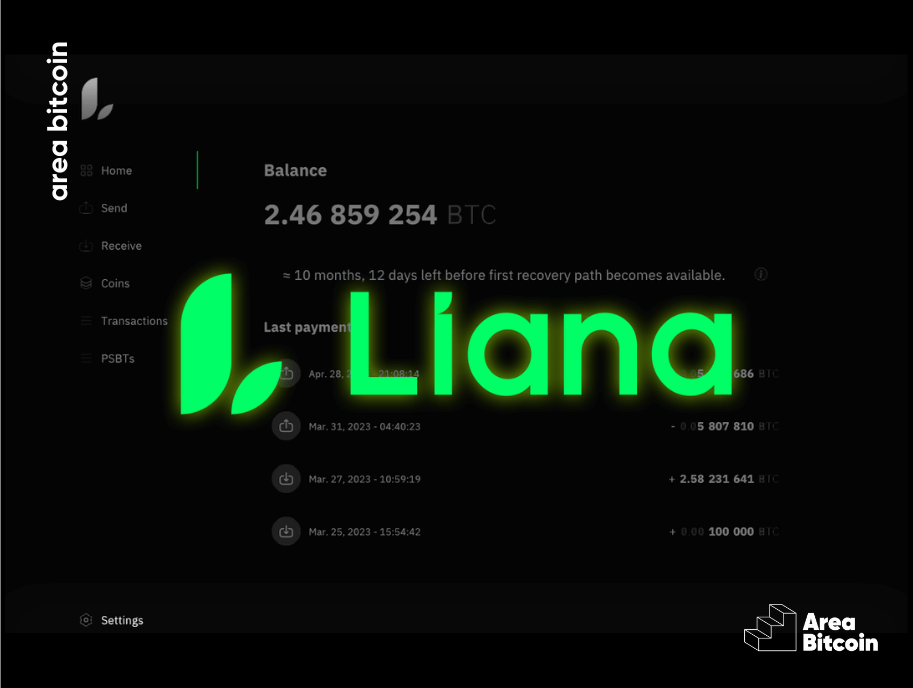Samourai Wallet is a Bitcoin wallet designed to prioritize anonymity and protect users from government and corporate surveillance of their transactions on the Bitcoin network.
With features such as CoinJoin support and the ability to conduct transactions via radio and SMS, the wallet attracted many privacy-conscious users. However, it also drew the attention of users who were considered “less well-intentioned” by governments. This ultimately led to the app being removed from the Google Play Store and even the arrest of the developers behind it.
In this article, we’ll explore how this story unfolded and its implications for privacy in the Bitcoin world.
Table of Contents
How did this story begin?
The attention of U.S. authorities wasn’t exactly new for Samourai Wallet, largely due to its “aggressive” or “questionable” marketing approach.
In 2022, amidst the war between Russia and Ukraine, several Russian oligarchs were sanctioned and excluded from international financial systems.
In response to this movement, the official Samourai Wallet account tweeted: “Welcome Russian oligarchs.” Unsurprisingly, this statement didn’t sit well with U.S. government officials.
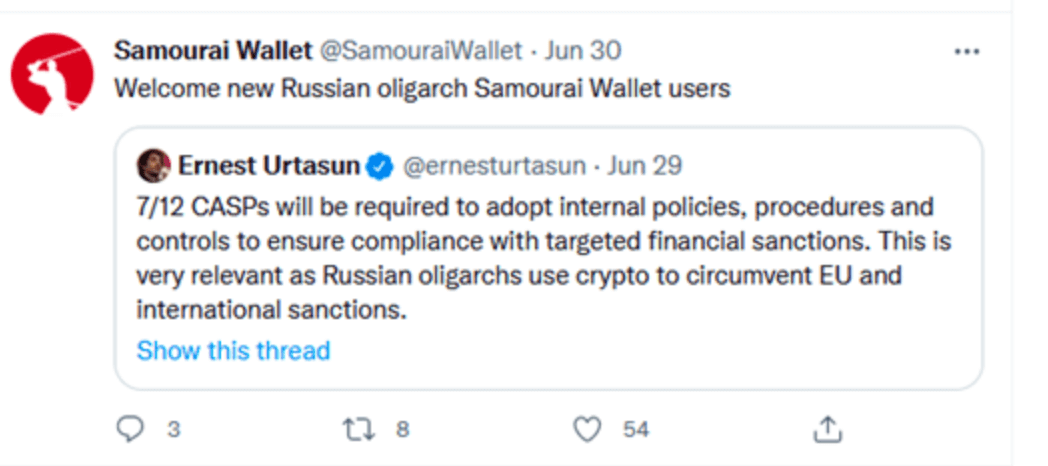
In another case, after Europol labeled Samourai Wallet as an “emerging threat,” the wallet’s CTO responded with a fiery retort on X (formerly Twitter): “Do you see us shitting in our pants?”

As the saying goes: “Ask for trouble, and you’ll get it.”
Arrest of the Developers
In April 2024, arrest warrants were issued for Samourai Wallet CEO Keonne Rodriguez, 35, and CTO William Lonergan Hill, 65. Both faced charges of money laundering and “operating an unlicensed money transmission service.”
Keonne was arrested in Pennsylvania, USA, while William was detained in Portugal, where authorities prepared for his extradition to the U.S. However, on July 9 of the same year, Hill’s attorney proposed a $3 million bail, with the condition that Hill be allowed to remain in Portugal. The judge accepted this proposal, requiring Hill to attend court hearings in the United States whenever summoned.
This case bears some similarities to the Tornado Cash controversy in the Ethereum shitcoin ecosystem the previous year, which involved similar charges in a different context.
Analysis of the Accusations from a Technical Perspective
From a technical standpoint, the accusations simply don’t hold up. Let’s break down the charges, starting with the allegation of money laundering.
No Bitcoin wallet software—whether it’s Samourai Wallet, Electrum, Blue Wallet, Green Wallet, etc—actually holds your bitcoins. These applications are merely tools that facilitate interaction with the Bitcoin network. Technically, your bitcoins reside in your addresses, which are derived from your seed phrase.
The balance in these addresses is recorded on Bitcoin’s public ledger, the Blockchain. The Blockchain itself is decentralized, with every node on the network maintaining a copy of these records.
By the same logic used to arrest the accused developers, should we also arrest everyone who holds a copy of the Blockchain? Should we arrest all Bitcoin users running a full node?
Now, let’s address the second charge: “operating an unlicensed money transmission service.”
Bitcoin, by design, operates without the need for governmental approval or oversight. Does this mean that anyone transferring as little as 1 satoshi is committing a crime? Is it even feasible—or economically practical—to “arrest” every Bitcoin user worldwide?
These questions remain open, for both Bitcoin users to reflect on whether “these demands can realistically be followed to the letter” and for government agents to consider whether “these requirements make logical sense.”
The Samourai Wallet
Samourai Wallet is a privacy-focused Bitcoin wallet offering features like offline transactions, CoinJoin, and Ricochet, all designed to protect users from government and corporate surveillance.
Created as a direct response to increasing financial surveillance initiatives, the wallet offers a range of innovative tools to prioritize and safeguard user privacy.
Notable features included:
- Whirlpool: A CoinJoin protocol that mixes transaction inputs and outputs, making it harder to trace funds on the blockchain.
- Ricochet: Added “hops” within a Bitcoin transaction, increasing the number of intermediate addresses between the source and destination addresses, complicating Chain Analysis efforts.
- Offline Transactions: Sending transactions via SMS or radio allowed the wallet to be used in completely disconnected environments, expanding accessibility for users in areas with limited or nonexistent infrastructure, or where connectivity might be monitored by dictatorial governments.
It’s essential to emphasize that although these features are neutral in their design and legal to use, regulators interpreted them as tools that could facilitate hiding illegal activities in the case of Samourai.
The Right to Privacy vs. State Regulation
The case of Samourai Wallet ignited a debate between two seemingly compatible but fundamentally conflicting principles: individual privacy and constant surveillance “in the name of collective safety.”
Argument for State Regulation
Advocates of state regulation, including the U.S. government, argue that non-compliance with rules like Know Your Customer (KYC) and Anti-Money Laundering (AML) enables illicit activities.
This argument resonates with many, especially during times when major media outlets highlight rising crime rates — whether physical or virtual — and the use of cryptocurrencies in crimes such as drug trafficking and terrorist financing.
A frequently cited example to support this argument is the Tornado Cash case (mentioned earlier), which was used by the North Korean hacker group Lazarus to launder proceeds from illicit activities.
Argument for Privacy
For privacy advocates and defenders of the Samourai Wallet, privacy is fundamentally a human right. People should not be treated as criminals for desiring more privacy. After all, just because someone has nothing to hide doesn’t mean they stop using curtains or closing their windows.
Moreover, the “pro-privacy” group fears that these increasing regulations could establish legal precedents used to justify broader crackdowns on any individual employing tools not aligned with centralized controls — or worse, targeting dissenters of the prevailing regime’s ideology.
The right to privacy is even enshrined in the Universal Declaration of Human Rights, Article 12, which states:
“No one shall be subjected to arbitrary interference with his privacy, family, home or correspondence […]. Everyone has the right to the protection of the law against such interference or attacks.”
This declaration, drafted and signed by multiple nations in the aftermath of World War II, serves as the foundation for many constitutional frameworks in the signatory countries.
Curiously, these principles often seem to be respected only when it’s convenient, don’t they?
Another layer of irony lies in the hypocritical argument of “criminalizing Bitcoin use because part of the network is employed for illicit purposes.” If this logic were followed consistently, fiat currencies like the U.S. dollar or Brazilian real should also be banned. It’s well-documented that the dollar is widely used by major banks and criminal organizations to launder money or sidestep legal accusations.
Just to cite two examples, there is The Telegraph‘s report on the Wagner mercenary group, which used HSBC and JP Morgan accounts to launder money by purchasing mining equipment. And in another case, the BBC reported that JP Morgan Chase paid a $290 million “fine” to “settle charges relating to abuse suffered by Epstein Island victims.”
Ashigaru Wallet: A Response to the Samourai Case
After the arrest of the Samourai Wallet founders, an independent group of developers launched the Ashigaru Mobile Wallet, a fork of the original Samourai Wallet code.

The Symbolism of the Name “Ashigaru”
The name “Ashigaru” originates from the Japanese word 足軽 (pronounced あしがる, a-shi-ga-ru), which literally means “light feet.” Historically, it referred to common infantry soldiers during Japan’s feudal era.
While samurai symbolized the feudal lords, ashigaru represented the everyday soldiers, embodying the spirit of “power to the people.” This idea aligns with the Bitcoin community’s frequent slogan, “We are all Satoshi.”
According to the project page, the name symbolizes: “Individuals of humble origins who, when needed, equip themselves with the tools available to fight during times of significant change.”
What is the Ashigaru Wallet?
The Ashigaru Wallet is a Bitcoin wallet built from the Samourai Wallet’s code, developed by an independent group of developers with a strong emphasis on decentralization.
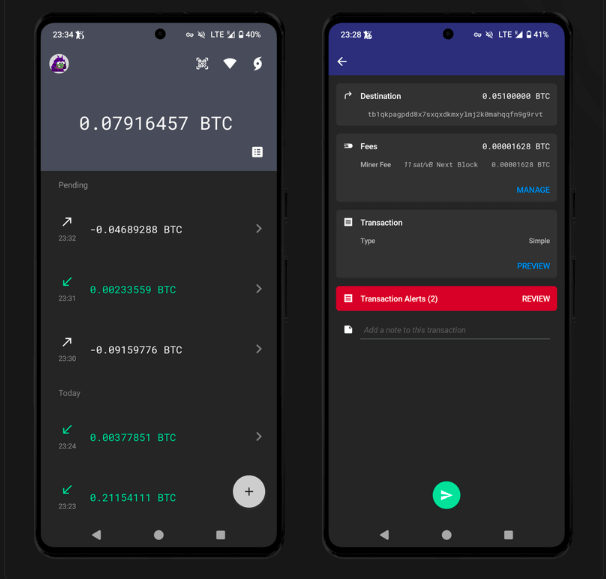
As the developers explain: “We believe that anyone can engage in peaceful, voluntary, and private commerce on the Internet, without being subject to tracking, surveillance, or censorship.”
To achieve this, the wallet takes two key approaches: requiring users to connect to their own nodes and enabling Tor by default on all project servers.
- Nodes Bitcoin in Ashigaru: Unlike Samourai, which offered a non-custodial wallet option, Ashigaru requires users to configure and use their own Bitcoin nodes. This approach decentralizes application usage and significantly reduces potential attack vectors.
- Tor Integration for Project Servers: Instead of using mainstream platforms like GitHub to host its code, Ashigaru developers opted to store it on servers running Tor (The Onion Routing). This prevents, for example, a single court order sent to GitHub’s headquarters from bringing down the wallet’s entire infrastructure.
By adopting these and other features, Ashigaru Wallet reaffirms its commitment to privacy.
The development of this application stands as a testament to the resilience of the privacy-focused community, which continues to create robust tools despite legal and regulatory challenges. Much like the mythological Hydra of Lerna—“cut off one head, and two grow in its place”—the takedown of Samourai Wallet has led to the rise of two (or more) even stronger solutions.
Conclusions
The arrest of the developers behind Samourai Wallet marks a pivotal moment in the Bitcoin ecosystem.
As governments push for greater transparency and “compliance with local rules,” the Bitcoin community continues to resist and, more importantly, demonstrate resilience by offering even more private and powerful tools — upholding Bitcoin’s founding philosophy as a medium for anonymous, decentralized transactions that empower individuals.
The outcome of this case will likely shape the future of privacy tools, testing the boundaries of regulation and Bitcoin’s ability to function beyond state control.
At the heart of this battle lies a fundamental question: Is privacy an inherent right that can be freely exercised, or must it be subordinated to the demands of public safety?
If there’s one clear takeaway from the Samourai Wallet case, it’s that the fight for privacy is far from over. The lessons learned will continue to influence the development and adoption of privacy-enhancing technologies across the Bitcoin ecosystem.
Until next time, opt out!
Share on your social networks:
Area Bitcoin is an educational Bitcoin school that aims to accelerate the financial and intellectual sovereignty of all individuals.
Did you like this article? Consider buying us a cup of coffee so that we can keep writing new content! ☕
